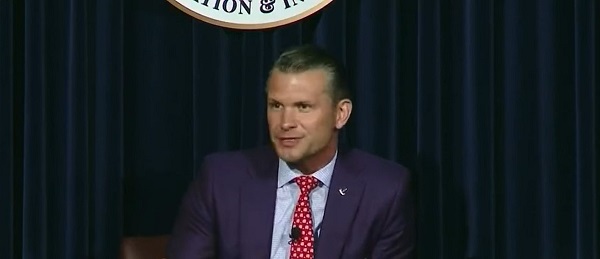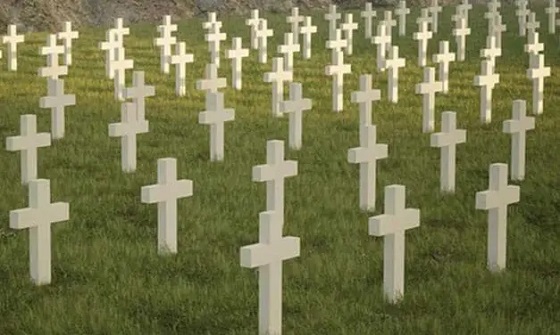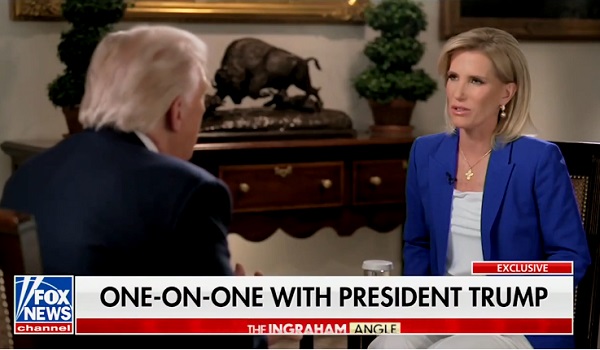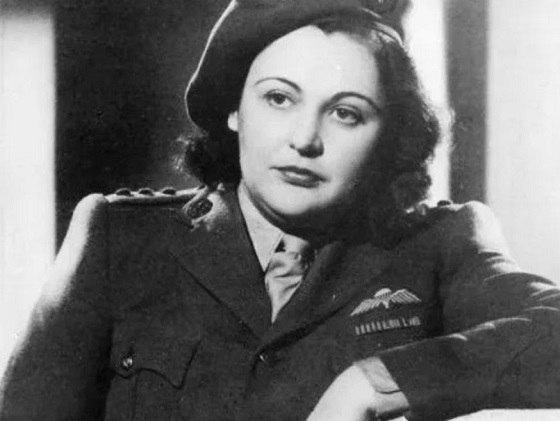armed forces
The Case for Peter Hegseth — Time To Try Something Different

By S.L. Nelson
Success in today’s world favors smart, creative leaders who can quickly adapt and make decisions that benefit their organizations. President-elect Donald Trump’s choice of Pete Hegseth to lead the Department of Defense marks a significant shift from his first administration.
Hegseth, with fewer ties to the traditional defense establishment, is expected to transform the department in two vital areas: First, he will expose generals and admirals who act out of self-interest; second, he will refocus the military on its core function of lethality — the use or threat of deadly force to win wars and deter enemies.
Hegseth’s appointment threatens senior military officers who are more concerned with their legacy than with mission accomplishment. These officers feel susceptible to changes that will threaten their carefully curated norms. Many current leaders have avidly promoted DEI (Diversity, Equity and Inclusion) and CRT (Critical Race Theory), and Hegseth’s threat to remove these programs stokes their fears. These leaders have promoted subordinates who share their views, creating a cycle of making leaders in their own image. To break this cycle, Hegseth will also need to ensure that general officers are held accountable for the officers they promote. These actions will ensure that his and President Trump’s ‘Warrior Boards’ achieve their desired effect and weed out the right leaders.
Civilian leaders and politicians should also scrutinize the retired officers who placed these generals in their positions in the first place. If multiple legacies are at risk, flag officers will develop and implement more objective metrics for recommending general officer positions.
Hegseth’s leadership will refocus the Department of Defense on its core purpose. By removing ineffective leaders who prioritize social theories over military effectiveness, he will eliminate a major obstacle. These changes will encourage accountability and forward-thinking approaches. A clear message will echo from the top down that adapting to change means manning, training, and equipping the military to win wars, rather than allowing military officers to succumb to the self-loathing which places individual egos above selfless service to the country.
Adapting to change is also the responsibility of military commanders. Officers command Army organizations. It is significant that in some branches of the United States Army, up to half the officers do not desire to compete for Battalion Command. Many reasons include burnout and the threat of investigations that are launched ad nauseam in a zero-defect environment. The Army cannot be effective if officers do not want to command. Commanders hesitate to enforce standards in this environment because an unhappy subordinate can ruin their career with a retaliatory allegation. If an investigation is launched, commanders worry that general officers will dispose of these allegations negatively rather than appear lenient. Secretary Hegseth will support his commanders because his commander in chief supports him.
Not supporting your subordinate commanders has vital consequences for national security. A glaring example of a lack of support for the Department of Defense is demonstrated by the contempt of the Chinese in answering Defense Secretary Lloyd Austin’s phone calls and his apparent indifference to it. “I think we’ll continue … to stress how important it is, and hopefully Minister Wei will schedule that call,” Austin told CNN.
One can hardly imagine Hegseth having the same attitude as Secretary Austin. Trump proved during his first term, with sanctions and recently renewed threats of another trade war with China, that his government will support its Defense Department by imposing harsh sanctions and other measures. This whole-of-government approach will allow Hegseth to focus on the military and make its interactions with foreign militaries more effective.
In fact, the Trump transition team is already laying the groundwork for forward-leaning tariff plans through legislation. Because legislation will make it harder to have subsequent administrations revoke these actions, the Defense Department will benefit from a more permanent government position when it comes to the exercise of economic power. Hegseth will, thus, occupy an even stronger position to engage with military threats to the United States with supporting economic policies that are not just unilateral executive actions by the Trump administration.
President-elect Trump’s selection of Pete Hegseth frees the Department of Defense from being anchored in the change dynamics of the past. Current and future change undercurrents cannot be managed with legacy processes. Leaders must adapt and be free to act outside of institutional norms, especially those tied to a selfish cycle of self-promotion and government social experiments rather than the effectiveness of the Department of Defense.
This article was originally published by RealClearDefense and made available via RealClearWire.
S.L. Nelson has served from the tactical to strategic level as a military officer. His views are his own and do not represent the position of the U.S. DoD.
armed forces
Why we keep getting Remembrance Day wrong

This article supplied by Troy Media.
 By Pat Murphy
By Pat Murphy
Remembrance Day once honoured soldiers for their courage and conviction, but the values they fought for have long since been rejected
With the untimely death of Tim Cook on Oct. 25, Canada lost a valued historian. Military history was Cook’s oeuvre, and the First World War was a particular specialty. His ability to marry academic rigour with accessible storytelling made him a relatively rare bird.
Naturally, Cook wrote about battles, military commanders and political leaders. But he was also fascinated with ordinary soldiers, scouring the archives for personal letters from the front and other material to develop an understanding of what
motivated the soldiers and how they managed the day-to-day horrors of prolonged trench warfare in an environment characterized by cold, mud, lice and rats, not to mention the ever-present spectre of violent death.
Camaraderie was critical. To quote from an interview with Cook: “one of the ways they cope is to create their own tribe, their own group that is insulated from everyone else.”
All of which brings us to Remembrance Day.
Although formally recognized as “remembrance for the men and women who have served, and continue to serve our country during times of war, conflict and peace,” both the origins and iconography of Remembrance Day relate to the First World War. There’s the two-minute silence at the 11th hour of the 11th day of the 11th month to observe the formal end of hostilities in 1918; the playing of the Last Post; and, of course, the ubiquitous red poppies.
The conflict wasn’t post Confederation Canada’s first military endeavour, but its scale dwarfed anything that came before it, and only the subsequent Second World War was a comparable event. Some 620,000 Canadians served between 1914 and 1918 and approximately 60,000 were killed. To get a sense of scale, adjust the fatalities for population growth and it would be comfortably north of 300,000 today.
In War: How Conflict Shaped Us, Margaret MacMillan notes the long history of cultures elevating personal characteristics associated with battlefield success, honouring bravery, endurance, toughness and the willingness to face death. It’s been pretty much a universal characteristic.
Nor should we think of war as only a male activity driven by patriarchal social structures. While it’s true that military hierarchies are traditionally male and the fighting in most wars has been done largely by men, women have always played
a key role in reinforcing the culture.
We, though, have become somewhat uncomfortable with the warrior ethos. Take, for instance, In Flanders Fields. Written in 1915 by Guelph’s John McCrae, the poem has acquired iconic status over the decades. It’s haunting and melancholy, sufficiently so to grab at your throat and send shivers down your spine. It’s also become inextricably intertwined with Remembrance Day.
There is, however, a small problem. While we now view the First World War as senseless carnage, In Flanders Fields has a very different perspective. As the third and final stanza makes unequivocally clear, the poem’s message isn’t about the war’s futility—it’s about the need to keep the faith and carry on to victory.
Much the same can be said about the music associated with the era. Those songs written in recent decades stress the sadness and futility of it all, but the actual popular music of the time was cheerful, patriotic and resolute.
Rather than seeing the soldiers as they were, we insist on recasting them as victims. Stripping them of personal agency, we ignore the fact that 80 per cent of them were volunteers, people who, for various reasons, chose to go to war.
So what motivated them?
Many were surely lured by the male affinity for adventure, compounded by patriotic fervour and enthusiastic loyalty to the concept of king and empire, however incomprehensible or disreputable the latter may now seem to us. There was also the buzz of an environment where the usual social norms regarding life, death and destruction had either vanished or become significantly attenuated. In her book, MacMillan documents how some found the whole experience “vastly exciting.”
Acknowledging this shouldn’t be confused with cheerleading. As I’ve previously written on more than one occasion, I think Britain’s reluctant decision to enter the First World War was a tragic error on many fronts. And if Britain had stood aside, Canada wouldn’t have been involved.
But respectfully remembering those who died shouldn’t be confused with turning them into something they were not. They weren’t hapless victims—they were people with beliefs and values of their own, even if we no longer look at the world in the same way they did.
Troy Media columnist Pat Murphy casts a history buff’s eye at the goings-on in our world. Never cynical – well, perhaps a little bit.
Troy Media empowers Canadian community news outlets by providing independent, insightful analysis and commentary. Our mission is to support local media in helping Canadians stay informed and engaged by delivering reliable content that strengthens community connections and deepens understanding across the country.
armed forces
What A Second World War Aircraft Taught Me About Remembrance Day

From the Frontier Centre for Public Policy
Sitting inside a B-25 showed me why Remembrance Day isn’t something we can take lightly
Here I was, sitting in the rear gun turret of our Mitchell B-25 bomber, with all my senses on guard and my head on a swivel. The day was clear, the sky could not be bluer, and the danger of enemy fighters coming at us with the sun at their back was almost a certainty.
Luckily, we had just finished our bombing run and were on our way back to base. Our experienced pilot, Major David Rohrer, co-pilot Liam Pearson, and flight engineer Jessica Side had managed to get us to the target unscathed, and we now only had to cross the water to make it home.
Suddenly, Dave had to take evasive action, jerking the plane up and to the right in an almost barrel roll. Cool as cucumbers, the rest of the crew stayed silent as they hung on while I continued to marvel at the incredible manoeuvrability of the B-25.
With 18 machine guns and a full bomb load, the B-25 was a true workhorse. Built in 1945 in Missouri, it showed just how multi-purpose the aircraft could be.
All of this was taking place in Canada last July in the country’s only airworthy B-25 Mitchell, flown out of the Canadian Warplane Heritage Museum in Hamilton, Ontario. The pilot was the museum’s CEO and the crew were volunteers. The target was Niagara Falls, then downtown Toronto (where we flew virtually at the same height as the CN Tower) and the body of water was Lake Ontario..
The experience showed the aircraft’s capabilities, but more importantly, it revealed the challenges faced by Canadian and Allied crews in the Second World War. They worked in noisy, cramped spaces that were too hot in summer and too cold in winter; faced constant danger from enemy aircraft and ground-based flak; dodged fighters and often returned with planes full of holes; flew mission after mission with little rest; and lived with the burden of seeing friends shot down or wounded.
This is what our forefathers went through. This is why we still remember and why we need to continue to honour the generations that came before and who fought for Canada and for our values. The Royal Canadian Air Force was born in 1924, 101 years ago. Its members fought gallantly alongside the Royal Air Force (RAF) and United States Army Air Forces, and many Canadians also flew in RAF and other Commonwealth units.
We owe them a debt that cannot be repaid. All we can do is make sure future generations will remember them, honour them, and stand ready to take their place in the next conflict.
Freedom is not free. It is paid for by the blood of men and women warriors prepared to pick up the torch. Warriors who have no cause except that of freedom, equality, and the protection of all.
As U.S. Army general Douglas MacArthur, who led Allied forces in the Pacific during the Second World War, said, “The soldier above all others prays for peace, for it is the soldier who must suffer and bear the deepest wounds and scars of war.”
This Remembrance Day, and at other times, let us remember and thank those who suffered wounds and scars, but let us also rededicate ourselves to follow their brave example.
Michel Maisonneuve is a retired lieutenant-general who served Canada for 45 years. He is a senior fellow at the Frontier Centre for Public Policy and author of In Defence of Canada: Reflections of a Patriot (2024).
-

 Business2 days ago
Business2 days agoLiberals refuse to disclose the amount of taxpayer dollars headed to LGBT projects in foreign countries
-

 Daily Caller1 day ago
Daily Caller1 day agoUS Nuclear Bomber Fleet Shares Fence With Trailer Park Linked To Chinese Intel-Tied Fraudster
-

 Digital ID2 days ago
Digital ID2 days agoCanada moves forward with digital identification for federal benefits seekers
-

 Alberta2 days ago
Alberta2 days agoSchool defunding petition in Alberta is a warning to parents
-

 espionage1 day ago
espionage1 day agoChinese-Owned Trailer Park Beside U.S. Stealth Bomber Base Linked to Alleged Vancouver Repression Case
-

 Daily Caller1 day ago
Daily Caller1 day agoLaura Ingraham Presses Trump On Allowing Flood Of Chinese Students Into US
-

 COVID-191 day ago
COVID-191 day agoSpy Agencies Cozied Up To Wuhan Virologist Before Lying About Pandemic
-

 Opinion2 days ago
Opinion2 days agoThe Germans called her the ‘White Mouse’ for her elusiveness










